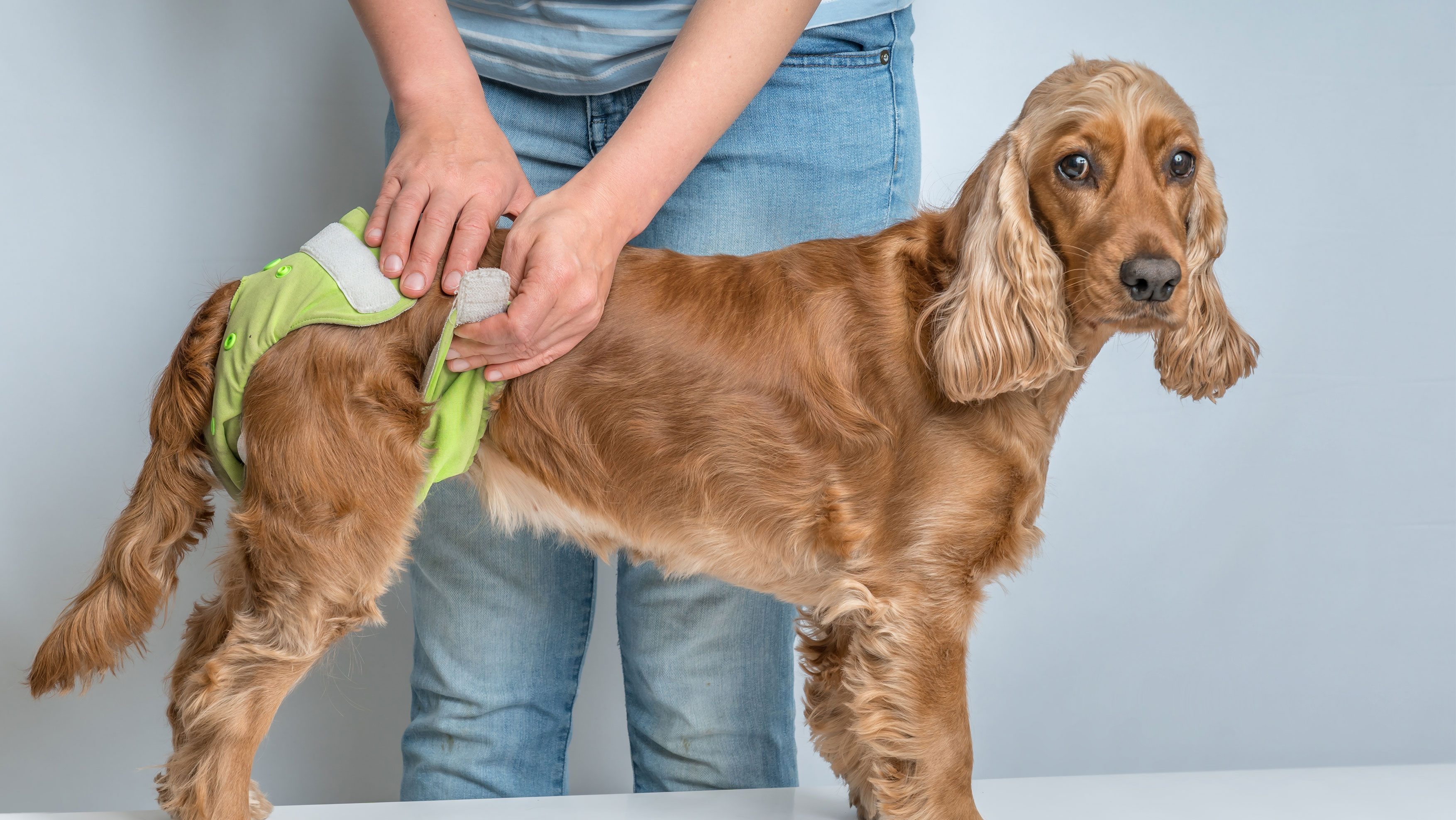
Dogs in season
Discover the symptoms of your dog's heat cycle, and how you can support your dog during this time.
A female dog that is unneutered will usually come into season (also known as heat) for the first time around six to twelve months of age. Smaller breeds may do so sooner - and larger breeds may not come into season until later. This is the fertile period of the dog's cycle where they can get pregnant. After that, she will have a season roughly every six months.
Signs that your dog may be in heat
Bleeding isn't the only sign that your dog is in heat. You can usually tell that she is coming into season from other signs such as:
- Vulva swelling: You may have noticed that your female dog's vulva (also known as the vagina) has increased in size and become quite prominent. The extent of swelling can vary among dogs.
- Red, bloody discharge from the vulva: A dog's discharge can vary in amount. While some dogs show barely any, with others it can be more noticeable. If the discharge seems excessive or has a strong odour, get in touch with your vet.
- High activity levels: Some dogs get restless or very tired during this period of heat.
- Increase in unwanted attention: Male dogs will go to great lengths to reach an unneutered female in heat, so keep a close eye on your pup and don't leave her unattended.
- Changes in behaviour: Your pup may start to behave differently towards other dogs, especially male dogs. You might notice that she mounts objects around the home more, and maybe even your leg!
- Frequent urination: You may notice your dog pees more when she's in heat. Be aware, though, that increased urination could be a sign of urinary infection. If you're not sure, speak to your local vet.
- Tail tucking: Your pup may hide her tail between her legs in the early stages of heat. Don't worry, she's not scared - this body language is just protecting her vulva.
How to help your dog in heat
As a responsible pet owner, it's important that you try and educate yourself on what is best for your dog and help her accordingly. Here are some tips to support your pup while she's in season:
- Use dog diapers to keep messes to a minimum and ensure that you choose the correct size for your dog to avoid discomfort.
- Be conscious of her behaviour changes and give her attention or space accordingly.
- Ensure she has her own food bowl, water bowl and bedding in a quiet space.
- If you intend to breed her, speak to your local vet about best practices for doing so.
- If you plan to spay your dog, wait one month after her heat cycle ends
With the right attention and being well-equipped, your dog's heat cycle can be easy to manage. Arrange for an appointment with your local Vets4Pets if you notice your dog's heat cycle is irregular, if there is excessive bleeding or discharge, if you think your dog might be pregnant or if her behaviour becomes abnormal.
Thinking of neutering your dog?
Getting your dog neutered or spayed can help prevent unwanted puppies, help curb aggressive behaviour and prevent potentially dangerous diseases.
